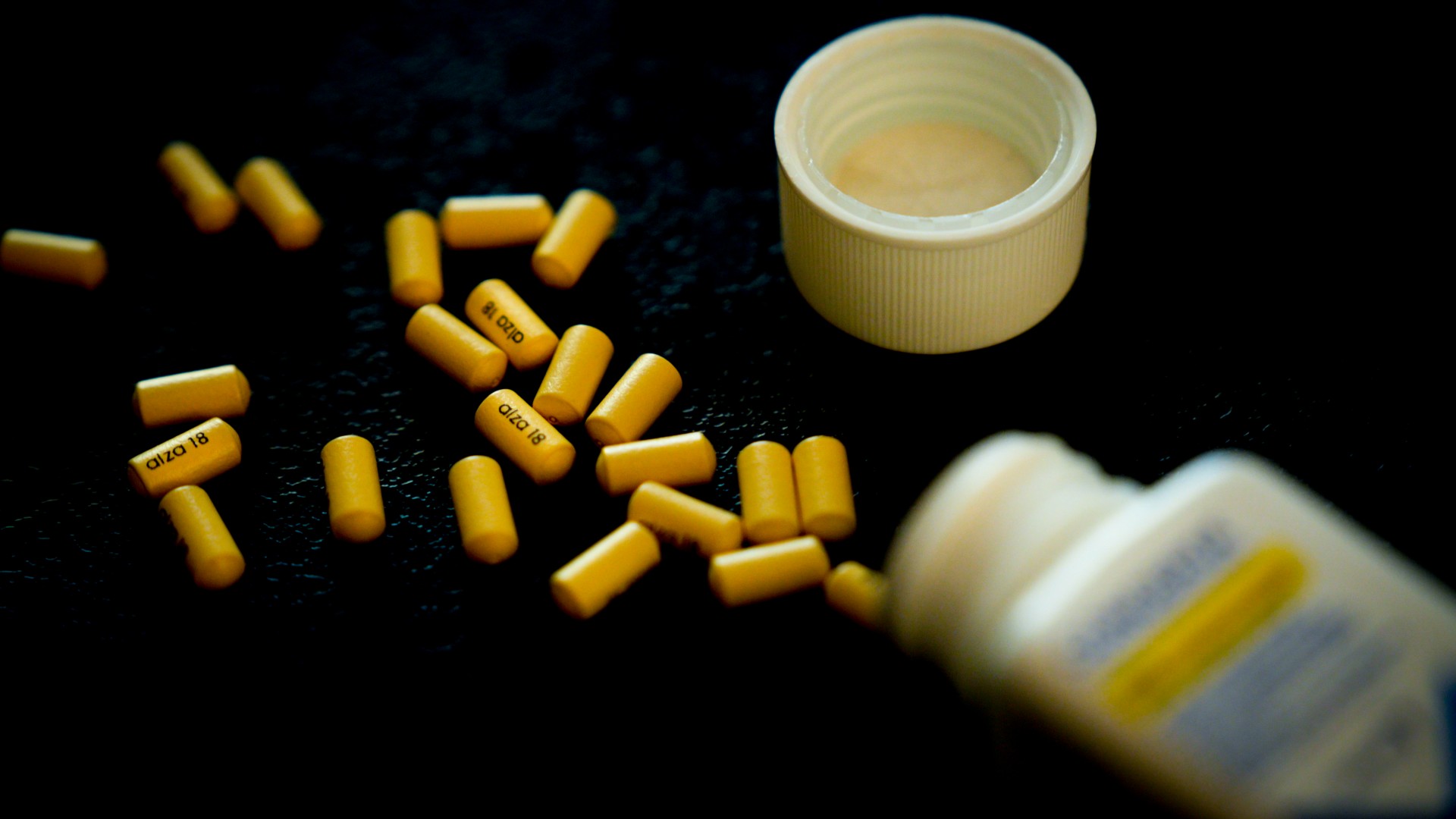ADHD drugs shortage: what's behind it?
Supply chain issues and 'tripling' of prescriptions concerns GPs as problems getting medication become 'desperate'

A free daily email with the biggest news stories of the day – and the best features from TheWeek.com
You are now subscribed
Your newsletter sign-up was successful
Doctors in the UK are increasingly concerned that a global shortage of ADHD drugs is leading to children going without medication and missing school, and adults self-medicating with alcohol instead.
With record numbers of people being diagnosed with ADHD, two-thirds of parents with affected children are facing problems getting medication, with some saying their children are then unable to concentrate in lessons or have to take days off, according to a survey by the charity ADHD UK.
GPs, meanwhile, are warning that "desperate" adults with ADHD are resorting to alcohol, "acting out of frustration and anger" at the medication shortage, said Sky News.
The Week
Escape your echo chamber. Get the facts behind the news, plus analysis from multiple perspectives.

Sign up for The Week's Free Newsletters
From our morning news briefing to a weekly Good News Newsletter, get the best of The Week delivered directly to your inbox.
From our morning news briefing to a weekly Good News Newsletter, get the best of The Week delivered directly to your inbox.
How common is ADHD?
It was long assumed that between 5% and 6% of children have ADHD but "the rates, in practice, are often higher", said Sven Bölte, a professor of child and adolescent psychiatric science at Sweden's Karolinska Institutet, on The Conversation.
The US Centers for Disease Control and Prevention estimated the rate at 11.4% of US children in 2022, while the Swedish Board of Health and Welfare forecast that the rates will eventually plateau at 15% for boys and 11% for girls.
The latest NHS figures show that there are a 230,000 people in England taking medication to treat ADHD, "including 110,000 children and teenagers", said The Times. But the true number of people in England affected by some form of ADHD "might be as many as 2.2 million", said the health think tank, the Nuffield Trust.
Why the shortage in medication?
There are "five types of medicine licensed for the treatment of ADHD in the UK", said The Times, the "most common of which is methylphenidate", sold under the brand names Concerta and Ritalin.
A free daily email with the biggest news stories of the day – and the best features from TheWeek.com
Most types of ADHD medication have been affected by global shortages that began in September last year and are caused by "manufacturing issues, supply chain problems and an increase in demand", said Sky News.
The rising demand is key. Prescriptions have "tripled" over the past decade "as the condition has become more widely diagnosed", said The Times. The "main increase" in diagnoses is among "young women aged 25 to 40", said The Guardian.
ADHD is a "widespread" topic on social media globally, with #ADHD attracting "tens of billions of hits" on TikTok. And, according to NHS England, ADHD was the second most-viewed health condition on the NHS website in 2023, after Covid-19, with 4.3 million page views.
Are we over-treating ADHD?
Part of the problem is that, currently, ADHD is treated as "something you either have or you don't", said The Economist. Treating diagnosed people as "ill" puts a strain on healthcare and special-needs-education systems, while forcing people to "fit in with normal", which can "cause anxiety and depression".
But this "binary view" of ADHD is "no longer supported by science". Researchers have realised that there is no such thing as the "ADHD brain". The characteristics around which an ADHD diagnosis is made – attention problems, impulsivity, difficulty organising daily life – span a "wide spectrum of severity, much like ordinary human traits".
For those at the severe end of the spectrum, "medication and therapy can be crucial for finishing school or holding on to a job" but, for most people with ADHD, the symptoms are "mild enough to disappear when their environment plays to their strengths".
-
 The environmental cost of GLP-1s
The environmental cost of GLP-1sThe explainer Producing the drugs is a dirty process
-
 Greenland’s capital becomes ground zero for the country’s diplomatic straits
Greenland’s capital becomes ground zero for the country’s diplomatic straitsIN THE SPOTLIGHT A flurry of new consular activity in Nuuk shows how important Greenland has become to Europeans’ anxiety about American imperialism
-
 ‘This is something that happens all too often’
‘This is something that happens all too often’Instant Opinion Opinion, comment and editorials of the day
-
 Time blindness: is being late a disorder?
Time blindness: is being late a disorder?In The Spotlight Understanding the cause of chronic tardiness can save a relationship
-
 A fentanyl vaccine may be on the horizon
A fentanyl vaccine may be on the horizonUnder the radar Taking a serious jab at the opioid epidemic
-
 Stopping GLP-1s raises complicated questions for pregnancy
Stopping GLP-1s raises complicated questions for pregnancyThe Explainer Stopping the medication could be risky during pregnancy, but there is more to the story to be uncovered
-
 RFK Jr. sets his sights on linking antidepressants to mass violence
RFK Jr. sets his sights on linking antidepressants to mass violenceThe Explainer The health secretary’s crusade to Make America Healthy Again has vital mental health medications on the agenda
-
 Nitazene is quietly increasing opioid deaths
Nitazene is quietly increasing opioid deathsThe explainer The drug is usually consumed accidentally
-
 The plant-based portfolio diet invests in your heart’s health
The plant-based portfolio diet invests in your heart’s healthThe Explainer Its guidelines are flexible and vegan-friendly
-
 More women are using more testosterone despite limited research
More women are using more testosterone despite limited researchThe explainer There is no FDA-approved testosterone product for women
-
 Doctors sound the alarm about insurance company ‘downcoding’
Doctors sound the alarm about insurance company ‘downcoding’The Explainer ‘It’s blatantly disrespectful,’ one doctor said